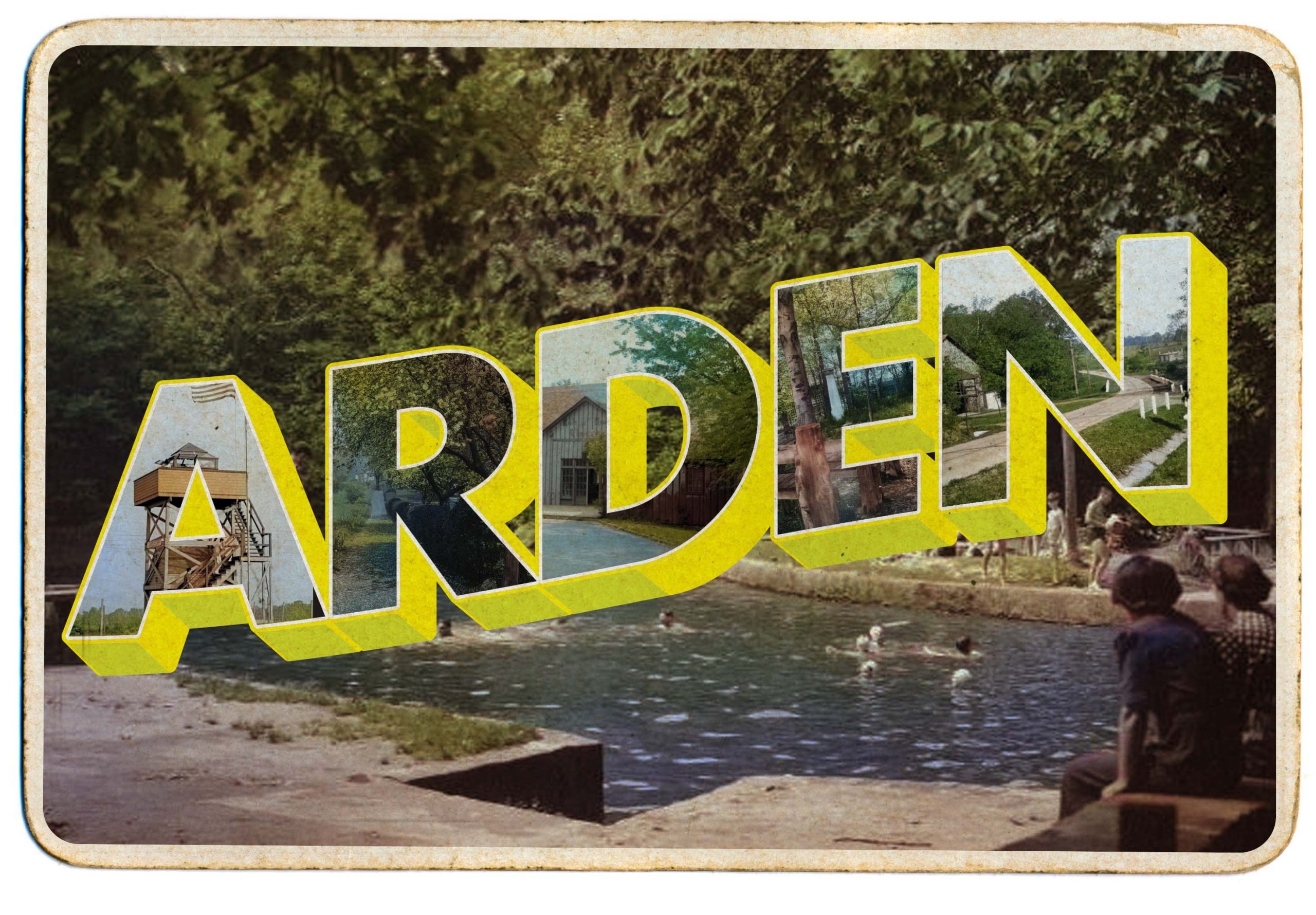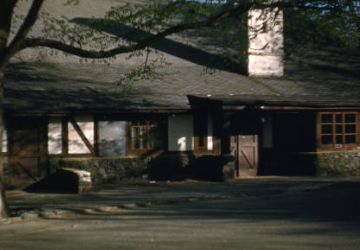


The Village of Arden was founded in 1900 as a single tax community based on the economic philosophy of Henry George, as well as the Arts and Crafts movement of William Morris and the Garden City movement of Ebenezer Howard. The communal land, such as the woods and greens, is owned by the Village while the land leased out for dwellings is owned by a trust. Residents own their houses but pay rent on their leaseholds in the form of land rent or taxes. These taxes cover village, county, and local school expenses and are assessed on the square footage of each leasehold, not on the value of any improvements which residents may make.
The Village of Arden was first incorporated in 1965. The territorial limits were defined in metes and bounds and indicated to be 155.93 acres. The government of the Village was vested in the “Commissioners of Arden.” The three Commissioners, who must be 21 years of age and a resident of the Village, were to be elected to serve a two-year term. The Registration Committee is charged with overseeing the elections to be held in May in each odd-number calendar year. All residents over 21 years of age who have resided in Arden for six months may vote. Meetings of the Commissioners, to be held no less than every three months, were to take place in one of the public buildings in the Village and were open to all residents. A Secretary was appointed to assist the Commissioners in maintaining its records. The Commissioners could also appoint an Alderman to act as a Justice of the Peace and a Police Force whose responsibility it was to preserve peace and order within the limits of the Village. When discussing revenue of the Village, the Incorporating Act includes the provisions of the document which conveyed the land to a trust in 1908. It instructs the Trustees to pay all State and local taxes from the money received as land rent. Any excess could be used for any governmental and municipal purposes. There are twenty-eight specific powers vested in the Commissioners of the Village. Many of these powers are similar to those of other municipalities including establishing ordinances and levying a fine for a violation of same, locating, vacating and maintaining streets, preventing nuisances, maintaining a sewage treatment system, controlling the drainage of water, granting franchises to companies for public purposes, acquiring land by condemnation or eminent domain, and adopting zoning ordinances and building codes. The Commissioners were not able to borrow money and issue bonds or to float debt.1
Two years later, in 1967, the Village of Arden was re-incorporated. The territorial limits, which were laid out in metes and bonds, now indicated that the Village was approximately 159 acres. The 1967 Incorporating Act indicates that the powers were now vested in the “Town Assembly of the Village or Arden.” The Town Assembly is made up of the residents of the Village with one resident serving as Chairman and another as Secretary. Both serve one-year terms but may be re-appointed. The Town Assembly also appoints a Treasurer who may serve two years. The Town Assembly meets on the fourth Monday of January, March, June, and September and thirty-five residents must be present at any meeting in order to constitute a quorum for the enactment of ordinances and adoption of motions. The Town Assembly elects members to serve on a Board of Assessment, a Budget Committee, and a Registration Committee. The amount of land rent to be charged each leaseholder is determined by a seven-member Board of Assessors. The five-member Budget Committee prepares the budget overseeing all Village funds which are not specifically governed by Federal, State, or County laws. The three-member Registration Committee registers all residents of the Village who may vote at the Town Assembly. The Village is awarded all powers possible under the Constitution and Laws of Delaware, but these are not enumerated except for the power to vacate the use of lands either by condemnation or eminent domain. The Town Assembly may appoint a Police Force, but there is no longer any reference to an Alderman. The Alderman’s duties are assigned to the Justice of the Peace Court nearest the Village. The 1967 Act included a provision for the Town Assembly to adopt zoning ordinances and building codes and to appoint a Village Zoning Board to oversee the development, improvement, and beautification of the Village.2 An amendment to this Act in 1971 made clear that the voting age was eighteen.3 In 1993, the number of members on the Registration Committee was increased from three to six.4
For the fully amended text of the current Charter, see http://www.charters.delaware.gov/arden.shtml
CITATIONS in Del. Laws
1 55 Del. Laws, c. 278 (1965) [pp. 782-805]
2 56 Del. Laws, c. 125 (1967) [pp. 510-23]
3 58 Del. Laws, c. 91 (1971) [p. 91]
4 69 Del. Laws, c. 30 (1993) [p. 28]
Delaware Laws from 1935 to present can be found online at http://delcode.delaware.gov/sessionlaws/
Village of Arden records at the Delaware Public Archives include:
• Administrative Records (1943-1948): 5000-000-000
• Oral Histories (1979-1981): 5000-000-001
• Standing Committee Minutes (1946-1989): 5000-000-002
• Minute Book of the Town Assembly (1943-2000): 5000-000-003
• Records of the Board of Assessment (1944-1993): 5000-000-004
• Photographs: 5000-000-005
• Arden Motion Picture Collection (16 mm films) (1938-1972): 5000-000-006
• Ordinances of the Town Assembly (1944-1993): 5000-000-007
• Deeds and Agreements (1860-2000): 5000-000-008
jnl / July 30, 2018 | April 24, 2019